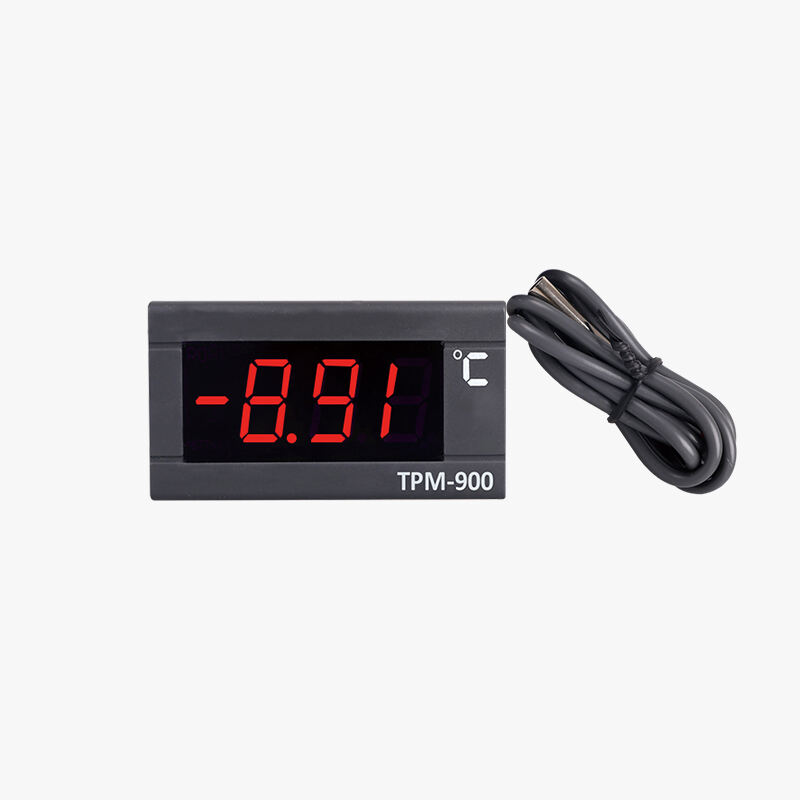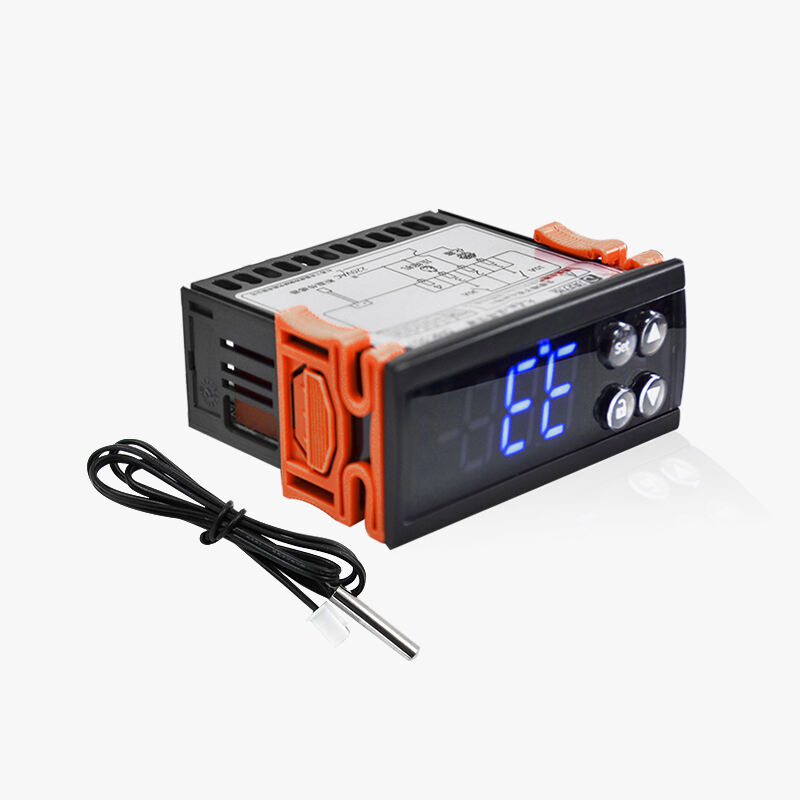The Evolution of Industrial Temperature Control Systems
Industrial temperature controllers have become the backbone of modern manufacturing processes, enabling precise thermal management across diverse applications. From food processing to chemical manufacturing, these sophisticated devices ensure optimal operating conditions and product quality. The market for temperature controller technology continues to evolve, with leading brands pushing the boundaries of innovation and reliability.
Today's industrial temperature controllers incorporate advanced features like multi-loop control, auto-tuning capabilities, and remote monitoring options. These developments have transformed how facilities manage their thermal processes, leading to improved efficiency and reduced operational costs.
Essential Features of Modern Temperature Controllers
Advanced Control Algorithms
Modern temperature controller systems utilize sophisticated PID (Proportional-Integral-Derivative) algorithms to maintain precise temperature settings. These algorithms continuously analyze process variables and adjust output signals accordingly, ensuring minimal deviation from setpoints. The implementation of auto-tuning features has simplified the setup process, allowing operators to achieve optimal control parameters without extensive manual calibration.
Furthermore, adaptive tuning capabilities enable temperature controllers to respond dynamically to changing process conditions, maintaining stability even during significant load variations or environmental changes. This level of sophistication ensures consistent product quality and reduces energy consumption.
Connectivity and Integration Options
Today's industrial temperature controller solutions offer extensive connectivity options, including Ethernet, RS-485, and wireless communications protocols. This enhanced connectivity enables seamless integration with existing automation systems and facilitates real-time data collection for process optimization.
Remote monitoring and control capabilities have become increasingly important, allowing operators to manage multiple temperature zones from centralized control rooms or even mobile devices. This connectivity also supports predictive maintenance strategies by enabling early detection of potential issues before they impact production.

Market-Leading Temperature Controller Manufacturers
Innovation Leaders
The most respected manufacturers in the temperature controller industry have established their positions through continuous innovation and reliable performance. These companies invest heavily in research and development, regularly introducing new features that address evolving industry needs. Their products often serve as benchmarks for the entire industry, setting standards for accuracy, reliability, and user experience.
Leading brands typically offer comprehensive product lines that cater to various industrial applications, from basic single-loop controllers to sophisticated multi-loop systems with advanced networking capabilities. Their success stems from understanding specific industry requirements and developing solutions that directly address these needs.
Support and Service Excellence
Top temperature controller manufacturers distinguish themselves through exceptional technical support and customer service. They maintain global service networks, providing rapid response times and expert assistance when needed. This commitment to customer support includes comprehensive training programs, detailed documentation, and readily available spare parts.
These companies also offer extensive warranty coverage and maintenance services, ensuring long-term reliability and performance of their temperature controller systems. Their technical expertise extends beyond product support to include application engineering assistance, helping customers optimize their processes.
Selection Criteria for Industrial Temperature Controllers
Performance Specifications
When evaluating temperature controller options, several key performance metrics require careful consideration. Control accuracy, sampling time, and input type compatibility are crucial factors that directly impact process efficiency. The controller's ability to handle different sensor types and maintain stability under varying conditions significantly influences its suitability for specific applications.
Advanced features such as auto-tuning capabilities, ramp/soak programming, and alarm functions should align with operational requirements. The controller's response time and ability to handle process disturbances are equally important considerations for maintaining precise temperature control.
Environmental Considerations
Industrial environments often present challenging conditions for temperature controller systems. Factors such as ambient temperature, humidity, and electromagnetic interference can affect controller performance. Leading manufacturers design their products to withstand these challenges, incorporating robust protection features and ensuring reliable operation under harsh conditions.
Environmental ratings, such as IP66 protection and operating temperature ranges, should match the installation location's requirements. Additionally, certification requirements for specific industries or regions must be considered during the selection process.
Future Trends in Temperature Control Technology
Smart Manufacturing Integration
The industrial temperature controller market is evolving rapidly with the emergence of Industry 4.0 technologies. Manufacturers are incorporating advanced data analytics, artificial intelligence, and machine learning capabilities into their controllers. These features enable predictive maintenance, process optimization, and enhanced energy efficiency.
Integration with Industrial Internet of Things (IIoT) platforms is becoming increasingly common, allowing temperature controllers to participate in broader smart manufacturing initiatives. This connectivity enables advanced analytics and data-driven decision-making capabilities.
Sustainable Solutions
Environmental consciousness is driving the development of more energy-efficient temperature control solutions. Manufacturers are focusing on reducing power consumption while maintaining precise control capabilities. Smart energy management features help optimize heating and cooling cycles, contributing to reduced operational costs and environmental impact.
The trend toward sustainable manufacturing has also influenced the design of temperature controllers, with emphasis on recyclable materials and energy-efficient components. These developments align with global initiatives for reducing industrial carbon footprints.
Frequently Asked Questions
How often should industrial temperature controllers be calibrated?
Industrial temperature controllers typically require calibration annually, though specific intervals depend on application requirements and operating conditions. Critical processes may need more frequent calibration to maintain optimal accuracy and performance. Regular calibration ensures reliable temperature measurements and control accuracy.
What advantages do digital temperature controllers offer over analog systems?
Digital temperature controllers provide superior accuracy, programmability, and diagnostic capabilities compared to analog alternatives. They offer features like auto-tuning, data logging, and network connectivity, enabling more precise control and easier integration with modern automation systems.
How do multi-loop temperature controllers differ from single-loop systems?
Multi-loop temperature controllers can manage multiple independent temperature zones simultaneously, offering centralized control and monitoring capabilities. They provide more efficient operation for complex processes, reduced installation costs, and simplified maintenance compared to multiple single-loop controllers.

